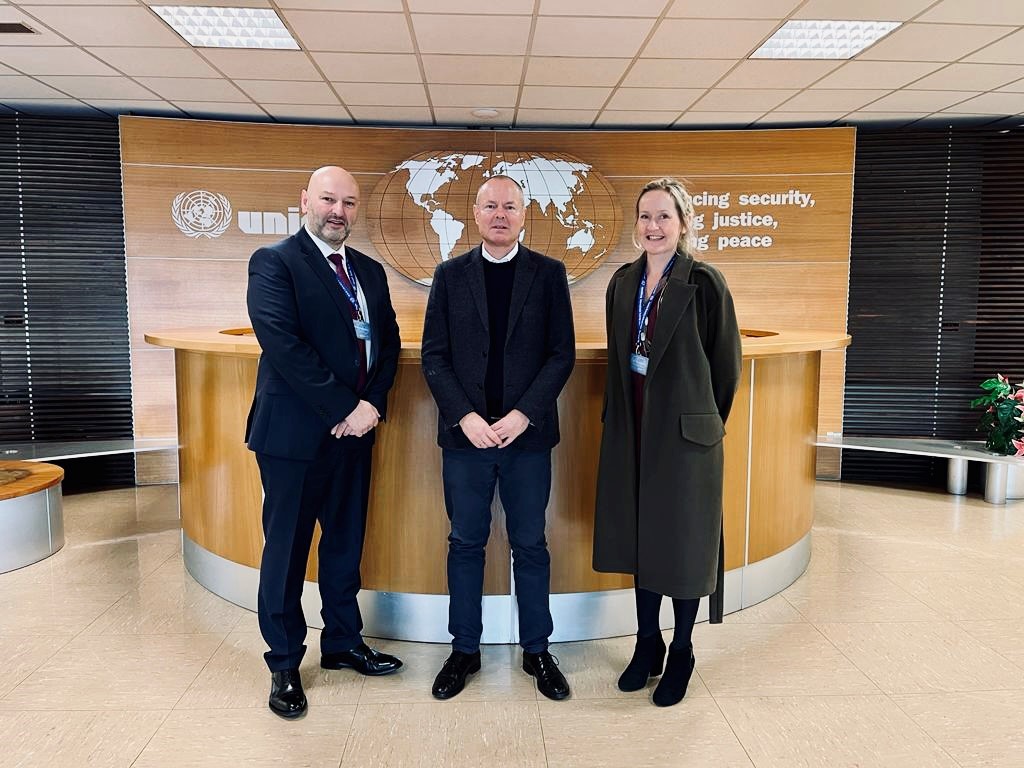We are presenting the CPTED-UK vision of Security and Social Value in the built environment at the International CPTED Association annual conference: Safe Cities by People. This year’s event is hosted by CPTED Brazil in Sao Paolo.

What we’ll talk about
Our presentation provides an overview of:
- How CPTED is applied in the UK today. We’ll explain how it’s embedded in the UK policy framework and how it engages stakeholders.
- Case study to show the application of CPTED in one of the EU countries and the benefits of including CPTED in the ESG frameworks.
- What we aim to achieve as a new member of the International CPTED Association
CPTED in the UK in 2023
It took an outsider in the UK to see CPTED from a different perspective, compare the system with other EU countries and notice the potential for the transfer of innovation.
Not many countries have a national design guide such as the British National Planning Policy Framework (NPPF). The NPPF defines the national approach to planning and places a legal requirement on all regional and local authorities to comply. Each Local Authority has its own planning and design strategy, which is location specific, yet aligned to the NPPF. The NPPF incorporates the built environment security as a material consideration in urban planning and design.
The NPPF does not make a direct reference to Crime Prevention through Environmental Design. Some of the local design guides use the term, others don’t. To help drive consistency in the built environment security, a network of police staff called Designing out Crime Officers are appointed across the 43 Police Forces across the country. Their skill set is varied and their knowledge of CPTED often out of date.
The UK has 1% of the world’s population and 20% of all the CCTV cameras in the world.

As CPTED-UK we desperately try to endorse a better urban design that favours prevention of crime instead of the retrospective investigation. We raise awareness of the complexities of CPTED and the multi-dimensional character of the methodology.
In reality the incentive to apply CPTED principles is rarely driven by the policy. CPTED in the UK is mainly applied to support the sustainability ambitions of private developers.
There are multiple frameworks that the real estate can use to communicate the level of sustainability of their assets. In the UK and in the EU we most often apply CPTED under BREEAM, HQM or SABRE- all developed by the Building Research Establishment (BRE).
At CPTED-UK we recognise the publication of the ISO 22341:2021 as a major milestone and endorse it in the work we do under any policy or ESG frameworks. The ISO brings CPTED back into focus and introduces a common language globally. It makes it easier to collaborate with international stakeholders when the terminology is clearly defined and understood. Collaboration is key to a lot of the CPTED strategies.
CPTED in Poland- Malta Office Park case study. Benefits of including CPTED in the ESG frameworks.
CPTED-UK work with EPP- the largest retail estate owner in Poland. EPP manage a portfolio of 29 retail centres and 6 office parks across 35 major cities. They use BREEAM International to evidence the environmental assessment of their assets.
In 2021 Malta Office Park in Poznan included Security and Social Value as part of their BRE environmental assessment methodology to help improve the BREEAM rating. CPTED-UK carried out both assessments. We placed the facility management team, tenants and the local community at the heart of the process. CPTED encourages collaboration and multi-stakeholder engagement which in Poland is not commonly applied.
Recognising the unique role of the Local Authority, we facilitated a partnership between the EPP and the City of Poznan. The photo shows the Deputy Mayor of Poznan, Bartosz Guss receiving the partnership declaration from the EPP Management Team. The document declares commitment to support the City in addressing the social needs of the local community.
This is a simple model of a public-private partnership, but that’s exactly what was needed at that stage.
The application of CPTED principles by Malta Office Park demonstrated to both parties the benefits of collaboration. The Mayor of the City of Poznan, EPP, the British Department of Business and Trade and BRE Global all helped to endorse the principles of CPTED.

As a result of our work with Malta Office Park, EPP have replicated the socially sensitive approach to property management across the entire estate. Local communities of the 35 Polish cities are now officially recognised as the EPPs stakeholders.
BREEAM International does not make a direct reference to CPTED. In reality, CPTED principles are firmly embedded in the BRE assessment methodology. This was confirmed by the Head of Building Performance at BRE, Dr Shamir Ghumra, who said:
“We’ve been delighted to assist the application of Crime Prevention through Environmental Design (CPTED) to a real estate asset in Poland for the first time. Where traditional approaches to security can often result in exclusionary outcomes, we hope that the integration of principles belonging to both BREEAM and CPTED will support Poznan in its Development Strategy. Ensuring the highest standards in security will undoubtedly help create an attractive environment for the city’s flourishing business community.”
What we aim to achieve as a new member of the International CPTED Association
CPTED principles are also closely aligned with the UN Sustainable Development Goals. In 2011 the Counter Terrorism working group of UNICRI produced a document called Improving Urban Security through Green Environmental Design. It encourages the application of CPTED principles and the development of the 3rd generation CPTED which envisages a green and sustainable approach to enhancing the living standards of urbanities, as well as improving the image of cities as user-friendly, safe and secure.
This time last year CPTED-UK reached out to some of the ICA members for support in approaching UNICRI for their continued endorsement of CPTED principles. As a new ICA member CPTED-UK intend to:
- facilitate the link between the ICA and the UK
- raise awareness of CPTED in the EU
- maintain the links with UNICRI to emphasize the synergies between CPTED and the UN SDGs.

